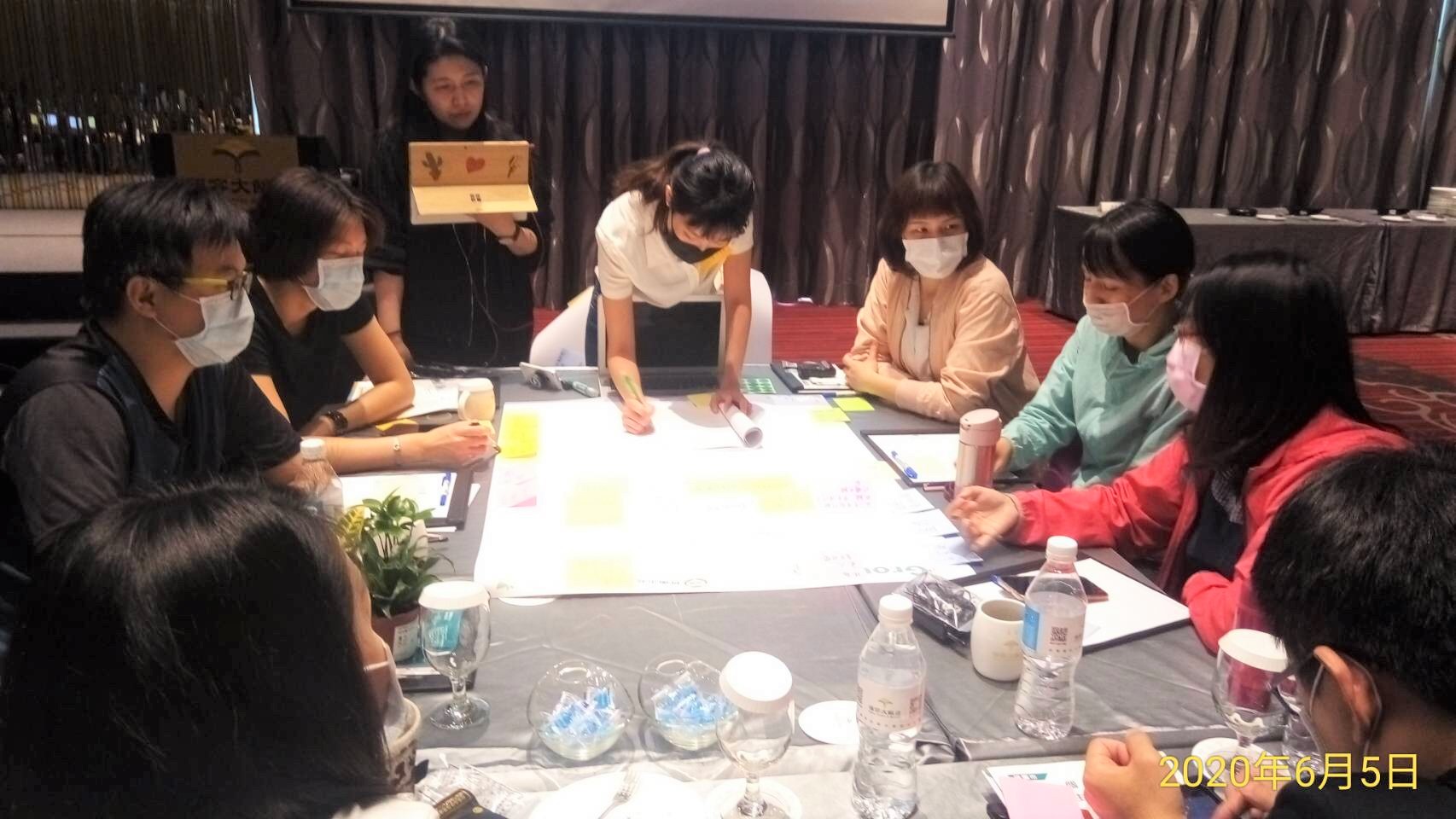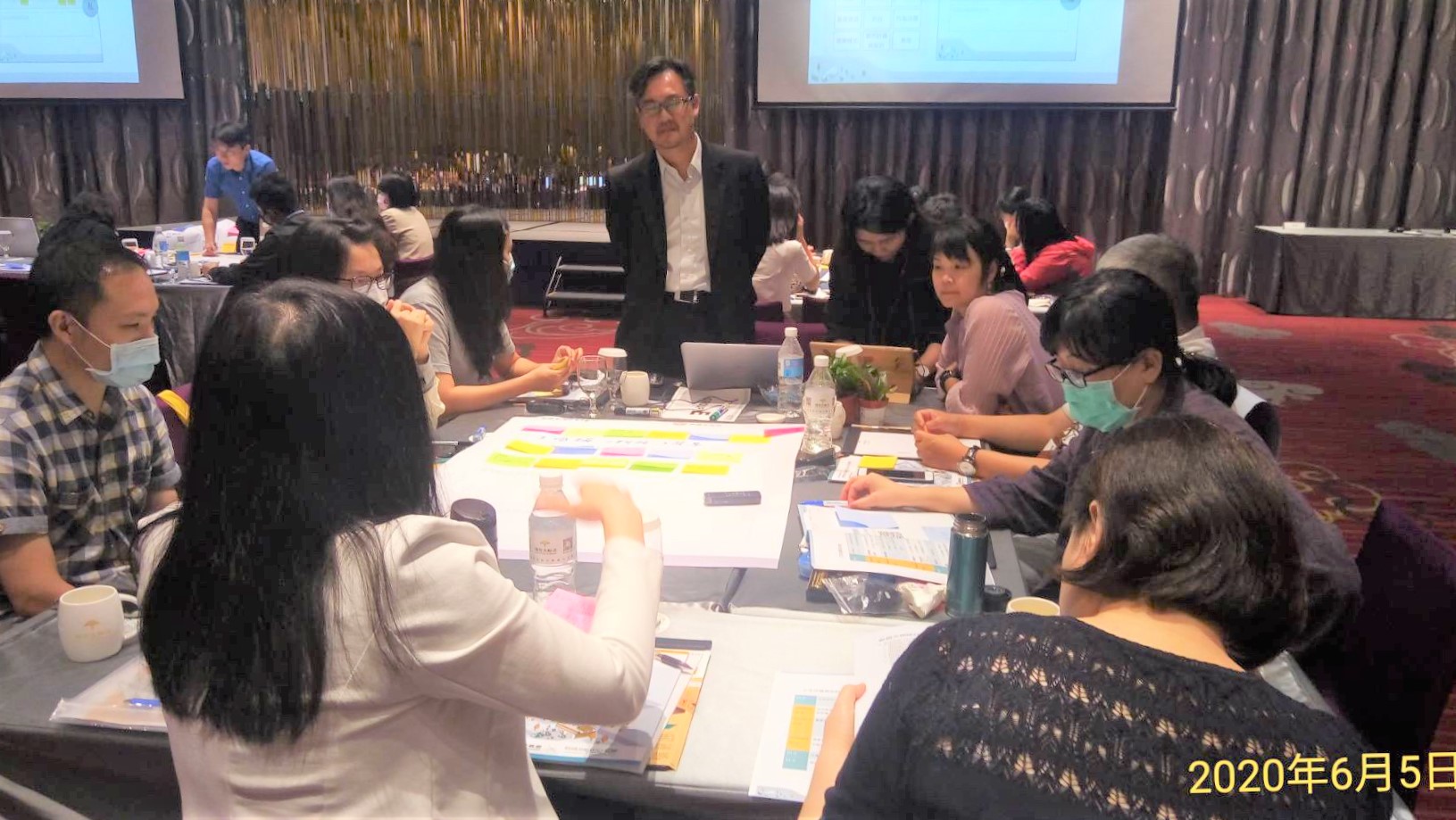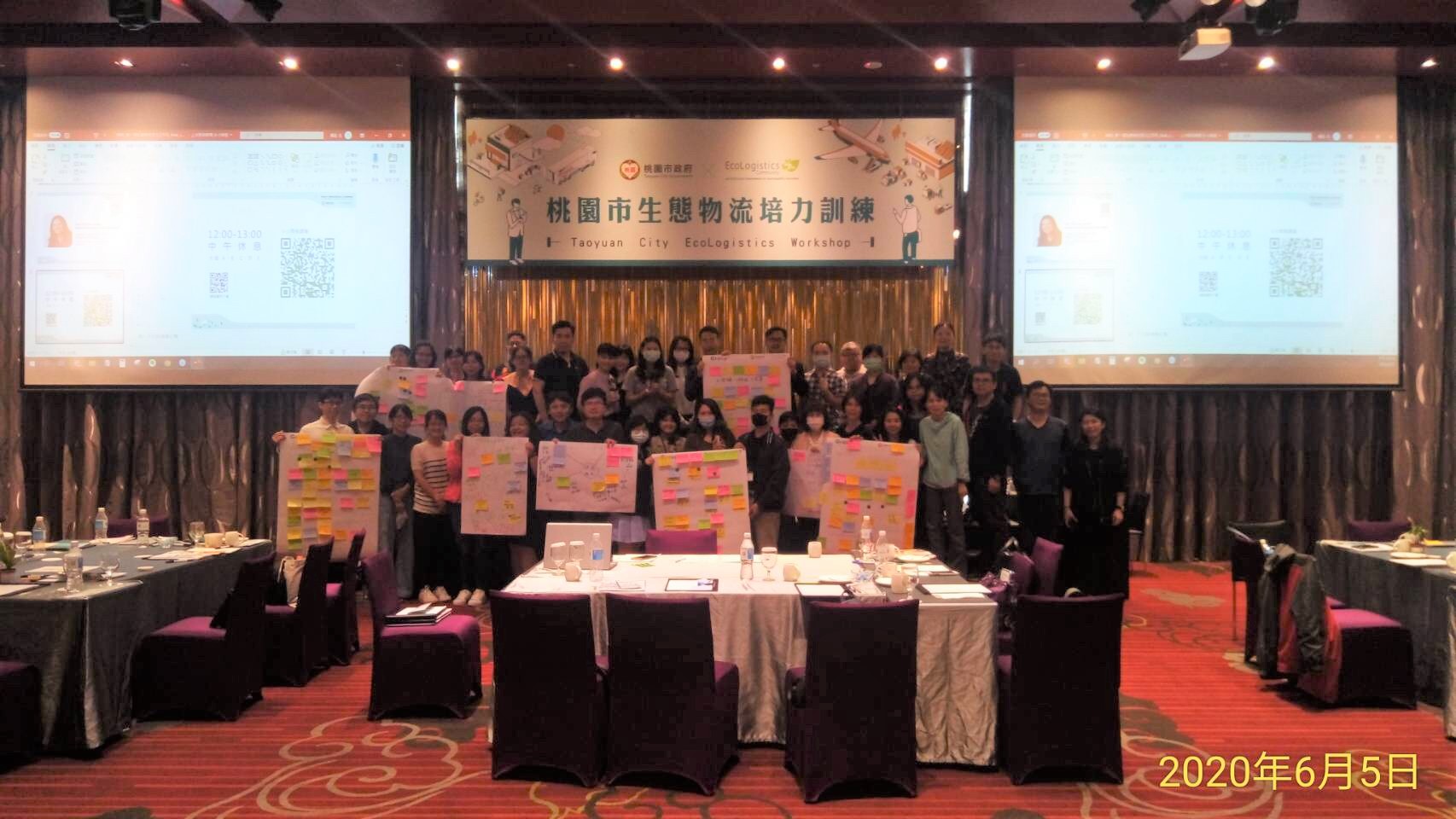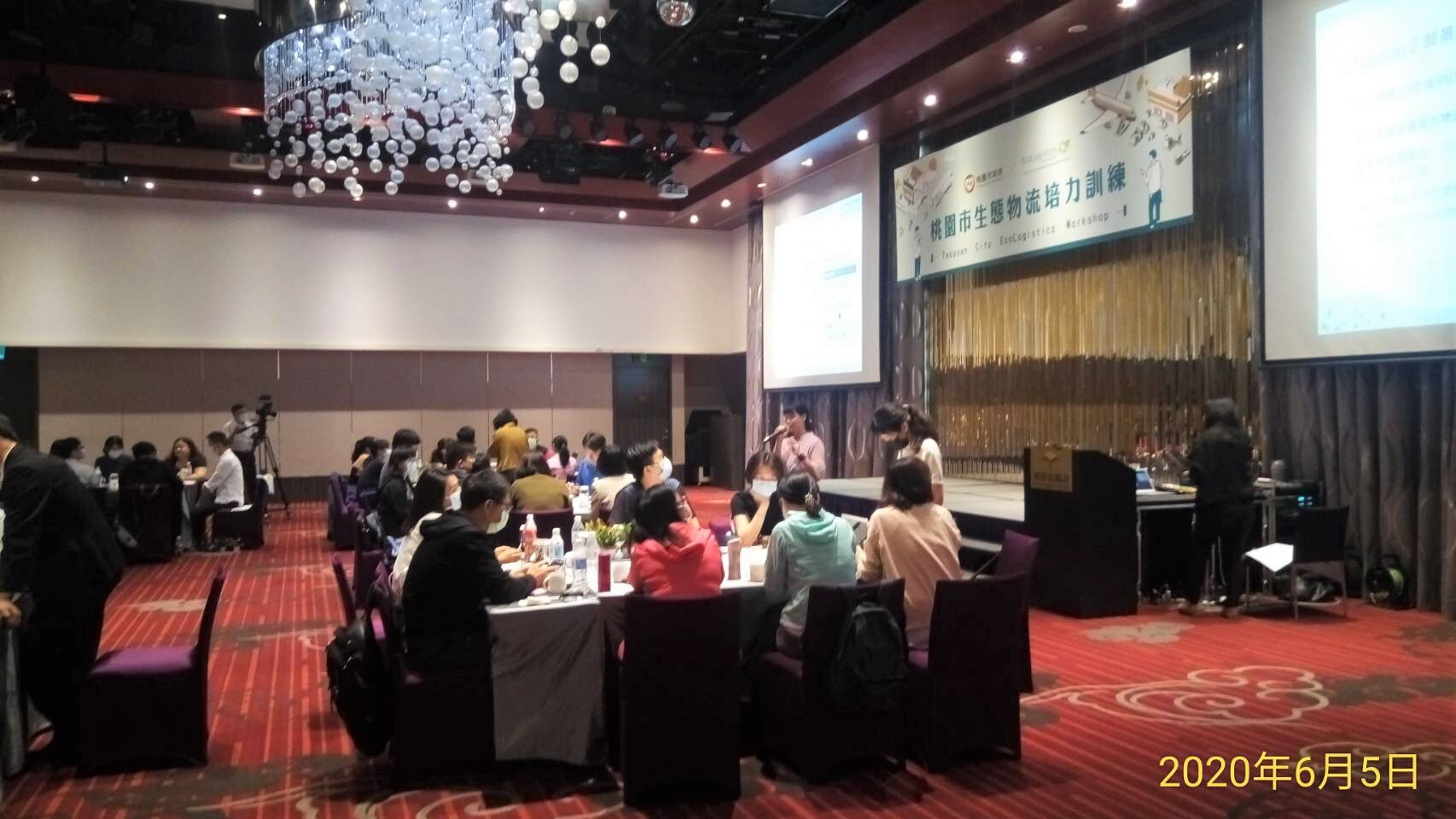The logistics industry is one of the main economic activities of Taoyuan City, being the hub housing the international airport and various logistics and industrial zones. Despite its importance, management of logistics has been sporadic or driven by the national government, resulting in inconsistent strategies and approaches to logistics. Under the EcoLogistics Community, Taoyuan City seeks to enhance stakeholder collaboration to gather opinions, thoughts, and strategies through a workshop series of the Strategy Mapping and Implementation Protocol, developed by ICLEI together with Sue Zielinski, the former Director of the SMART Center, University of Michigan.
The first consultation workshop was attended by 31 city officers from 18 departments and government-linked companies to deliberate on the current challenges, the effectiveness of projects, and future outlook for urban logistics and freight in Taoyuan City. This is also the city-wide cross-departmental consultation on urban logistics with representatives from the Urban Planning Department, Agriculture Bureau, Transportation Bureau, Environmental Bureau, Economic Development Office, and others.
One of the key highlights during the discussions is the need for cross-departmental collaboration and stakeholder engagement to enable partnerships and kick-start the process of change. However, the logistics providers, driven by stiff competition and commercial interests, are reluctant to share trade information or data. A survey amongst the workshop participants also revealed that 67% believe that this is the critical factor to realize ecologistics. Therefore, discussions also revolve around how public authorities can provide incentives to subsidize local manufacturers. Through one of the demonstration actions under the EcoLogistics Community in Taoyuan, the city hopes to cluster key logistics players into a Qingpu Logistics Cluster. The goal is to create a platform for these players to work closely and encourage them to share relevant information to streamline operations.
There is also tremendous interest in leveraging on the existing high-tech industries and start-ups in deploying technology to catalyze urban freight efficiency while reducing its carbon footprint. Possibilities such as autonomous vehicles, 5G technologies, smart warehousing, and big data analysis are considered for Taoyuan City. However, the question is how to ensure integration to the existing infrastructure and system to ensure that the city is also livable and safe for the local communities.
Renewable energy infrastructure is also intensely deliberated as this is one of the critical motivations for Taoyuan City to contribute to the national climate goals. Thus far, 41% of the energy source of Taiwan is powered by renewables, but the fossil fuel usage for the transport and logistics sector continues to increase, making it a vital industry to focus on achieving the climate goals by 2030.
To reach the vision of an efficient and sustainable logistics system for Taoyuan City, the EcoLogistics Community Taskforce in Taoyuan is actively engaging the private stakeholders and start-ups. The second strategy mapping and implementation protocol workshop will be held in August 2020 for private companies. The latest development of the EcoLogistics Community can be found here.






